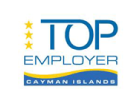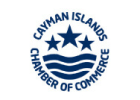Sundance movie highlights corporate “tax-dodging”
by Steve on January 19, 2012
A Royal Gazette article popped up in my Google alerts (and appears to have been hastily removed) drawing attention to Bermuda’s role in a movie premiering at this year’s Sundance Film Festival called “We’re not broke” which claims to expose widespread corporate “tax dodging”.
This isn’t a swipe at Bermuda, I’d be gobsmacked if Cayman didn’t get a mention quite frankly but it will be months till we get to find out (when it will hopefully be released on Apple TV).
Here’s an article about the film from openly-liberal-leaning publication The Nation: http://www.thenation.com/blog/165635/were-not-broke-movement-helped-spark-occupy-wall-street
In the interests of full disclosure, I am no right-wing libertarian wing nut (heck, I took several months off work in 2008 to volunteer on the campaign of a Democratic Senator). But the problem with so-called exposes like this is that they rarely address the issue that the US has a fundamentally unreasonable cross-border tax policy. Offshore companies generally become involved to allow big corporations to move capital around the world without being unfairly taxed. After all, if a US company makes money in an Argentinian sub that it wants to reinvest in one in Italy, why should it be forced to declare a dividend to the US parent that is subject to US tax before doing so? (Bear in mind, the profit has already been taxed in Argentina and could be reinvested there without further penalty). What has the US done to “deserve” tax revenue on profits generated in Argentina?
Individuals are taxed to pay for public services from which they benefit (in the case of roads and public libraries) or from which they could potentially benefit in some unfortunate circumstance (in the case of welfare related to old age, infirmity or unemployment).
It’s not impossible to extend this logic to companies, that benefit from access to a well-educated workforce, public infrastructure, law and order, a judicial system and so on.
But what benefit has a US corporation enjoyed from the US government in relation to overseas operations that would justify payment of taxes to the US government? This is just a case of “tax me if you can”.
Furthermore, the goal of a company is ultimately to return profit to shareholders in the form of dividends. In order to declare a dividend, the company must eventually repatriate profits earned from overseas operations at which point it presumably is taxed. Therefore the benefit of the US government is aligned with that of the shareholder. Profits will only be reinvested if the company believes that investment will yield yet more profit in the future. If the IRS is being diddled by the inappropriate funneling of profits around the world, so is the shareholder. Whilst the former might result in a fine, the latter would result in swift remedial action by the board of directors, whose job is to maximise dividends to the shareholders. If the Directors fail to do so, the shareholders themselves will act to replace them.
Where the so-called “tax-dodging” is a result of loopholes in the US tax code (that, for example, allow R & D costs to be written off in the year incurred) that cannot be blamed on offshore financial centres. And the “loopholes” were presumably enacted to achieve some benign end (often, badly needed economic stimulus). Hopefully the film-makers have considered the negative impact on the economy of scrapping any tax concessions they have described or portrayed as “tax dodges”.
Say the film-makers: “Neither one of us had any experience in this type of high finance prior, so we thought it was a great challenge to dive into.” It’s just as well the ins and outs of “high finance” are easy to pick up from a few interviews with sympathetic sources.
Robust and fair-handed an analysis as this film is bound to present, it can’t live up to the seminal work on US corporation’s use of offshore vehicles, The Daily Show’s 2005 classic “Gimme Shelter”.
In the immortal words of Ed Helms, “taxes are for d****bags”.
SHARE THIS ARTICLE
Recent Articles









